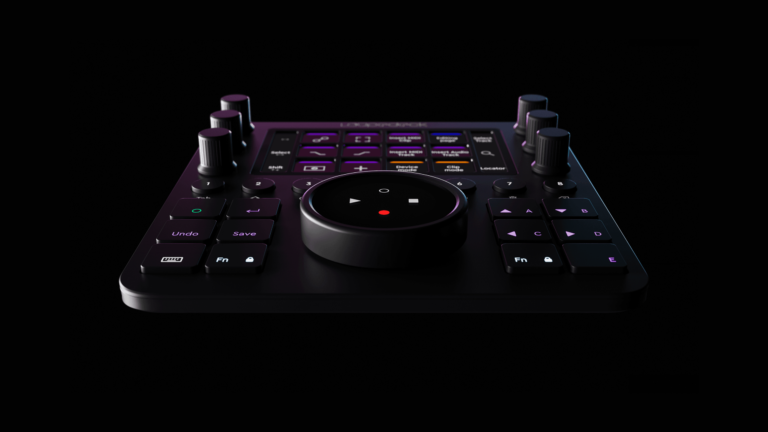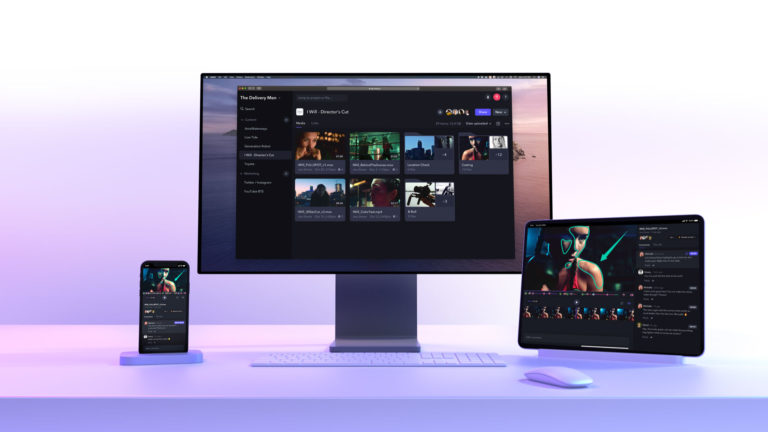American Beauty, Wings of the Dove, Stage Beauty and
The Madness of King George. He got his chops editing
at the BBC for 18 years, which he calls “the best training possible.”
He took the leap to freelancing 15
years ago and spent some hard time breaking through to movies. “It
wasn’t easy because of the snobbery attached to moviemaking,” he says.
“In spite of BAFTA Awards and so on, I wasn’t considered good enough
for a feature film.” Along came The Madness of King George, director
Nick Hytner’s first film, and the rest is history. He’s also done
second unit directing for The Madness of King George
and Stage Beauty.
second grant, having wasted an earlier grant in the futile pursuit of a
Maths/Physics degree. I am not a great fan of film schools, as they
seem to turn out graduate students totally unprepared for work in the
industry. Three years training as an editor doesn’t prepare a student
to assist, and the chances of editing straight from school are remote.
yourself you would eventually get promoted from assistant to editor,
which I did. I worked on numerous documentaries, comedy and children
programs, drama series and plays as well as cutting news items on 16mm
reversal print, which was used for transmission with tape joins. These
items of about three minutes’ duration had to be cut and mixed with
voiceover in a very short time, and there wasn’t much room for making
miscuts as the joins would tend to bounce in telecine.
The shaping of -and sometimes the creating of – a story is very much
down to the editor of a documentary, and those skills are very useful
in looking at a dramatic film as a whole and deciding what can be
deleted and transposed and where the strengths lie. It sounds corny and
may be pretentious but it’s all about feel – what feels right. It’s
probably the simplest rule but not that helpful, because what feels
right for one person doesn’t for another. That leads me to the use of
Lightworks, because its design is very much like editing on film. In my
mind, there is no feel in working from a keyboard. It’s an obstacle
rather than an asset.
for over a year, with DeNiro eager to have my input on script and music
from day one. It’s not that he’s making a special case with me, because
he believes that films are made collaboratively. He is very open to
ideas and argument and has no ego to defend. I am amazed at his
humility and self-mocking humor. He has enormous energy and youthful
zeal about film directing and endless amount of stamina. His
obsessiveness can be painful though, as is his love of “just one more
take.”
location because DeNiro likes to be able to review dailies with me when
there is any down time on set. Because of the volume of film each day
and his desire to see every frame, it is time-consuming and a little
laborious. Generally speaking, I have already viewed and cut the
material we are looking at. I also have a cutting room in Soho with two
linked Lightworks Touch systems, which we have to keep updated so that
I can work there as well on weekends, and when there is no power on
location.
I am influenced by many of the films I have seen. It’s impossible to
say what input an editor has had on a film without being a fly on the
wall or knowing the material he’s had to play with or knowing the
director. I am generally not aware of editing unless it’s bad or I’m
bored by the film I’m watching. I’m not aware of having a style. If
there is a style to any particular film I have worked on, then I would
hope the style was dictated by other things as much as me.
experience and be (politely) honest about your work. Directors need to
know they can get an honest response from you even if it’s going to be
painful. I should add that I have been fired twice, for telling a
director in one instance and a studio head in another that they had a
problem with their films.


Did you enjoy this article? Sign up to receive the StudioDaily Fix eletter containing the latest stories, including news, videos, interviews, reviews and more.










Leave a Reply